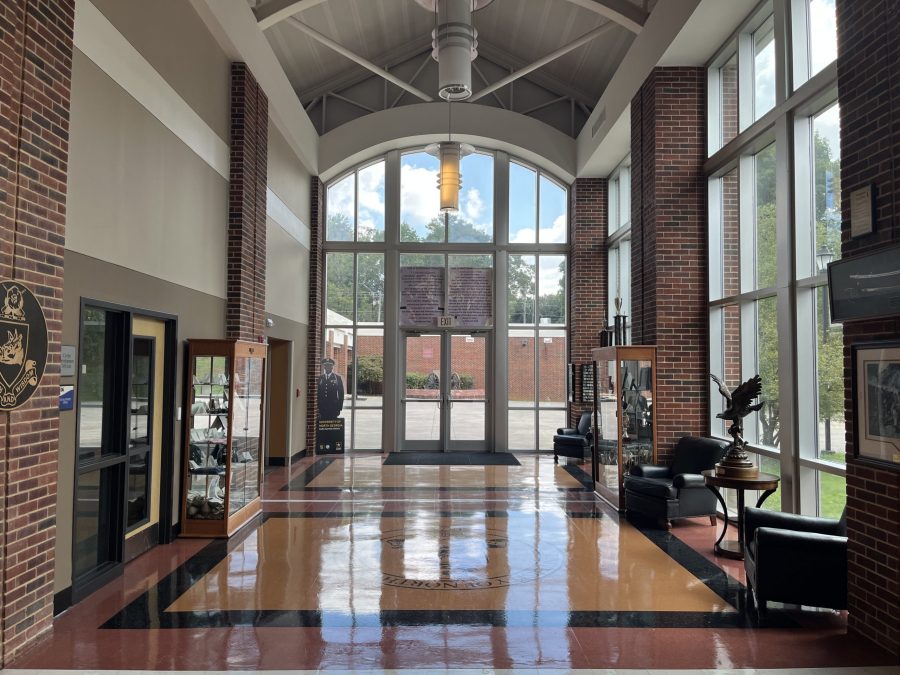
As a student on the University of North Georgia’s Dahlonega campus, it is not uncommon to have heard rumors from civilian students indicating that, despite making up less than 10% of the student body, cadets are responsible for a substantial proportion of crimes committed on campus as defined in the Annual Security & Fire Safety Reports.
“Staying away from cadets is one of the first things I heard from other girls when I came to UNG,” says Marita Malouf a sophomore biology major. She said, “it’s a common conversation at UNG that cadets are individuals to be careful around especially if you are a female.”

According to Col. Joseph Matthews (Ret.), commandant of cadets, members of the Corps “wear a cadet uniform daily on campus so they are more visible… which sometimes leads to more scrutiny.” Consequently, cadets may be more likely to be subjected to allegations from civilian students who may not be aware of the different set of standards to which members of the Corps are held.
Matthews says the Office of the Commandant of Cadets is unaware of rumors about the alleged cadet criminal activity. Matthews says this is the first time this has been brought to his attention and he believes “the rumors are false.”

Matthews described the various “levels of teaching, coaching and mentoring throughout a cadet’s experience… which assists him or her in developing ethical behavior and good decision-making skills.” Specifically, cadets are bound to the principles outlined in UNG’s Honor Code, along with the Blue Book and Policy Letters issued by the Commandant of Cadets which seek to develop cadets’ “character through military training and regulation of conduct according to military discipline.” Matthews says this guidance method can lower the likelihood of cadets engaging in criminal behavior.
Within the Office of the Commandant of Cadets and the Cadet Chain of Command, there is a distinction between a violation of a Blue Book or Military Policy and a reportable crime. Some non-cadet students maintain that members of the Corps present a higher threat to their safety on campus. Matthews says this perceived threat is partially the result of the way in which the Dahlonega campus segregates cadet and civilian students from residence halls to requisite courses for cadets only.
Cadet Hayden Pike, a junior criminal justice major says he is not aware of the rumors, yet they do not surprise him. “I’ve heard of a few stories about cadets doing stupid things while drunk,” says Pike. He feels the reason why cadets may act out is due to the restricted lifestyle they have. Pike says, “cadets are so restricted compared to their peers and they haven’t had an opportunity to be an adult yet due to being ‘parented’ by the Corps.” Pike feels that the Corps. could do a better job at disciplining those who do act wrongly. A typical punishment according to Pike is not being allowed to leave campus for a few weeks which he says “means sneaking out” instead. “As far as the Corps. working to prevent things like this from happening, I would say they aren’t doing a great job,” says Pike including that cadets are given a briefing each semester on what not to do.
For civilian students on the Dahlonega campus, it can be difficult to understand or sympathize with cadets because, due to the nature of the cadet program, cadets and civilians are separated. Matthews says he thinks this lack of unity has created a negative connotation surrounding members of the Corps, which has led to misguided preconceived notions about cadets.
Greg Williams, director of public safety and chief of UNG police, was contacted for this story and did not give a comment other than to refer to the annual security and fire safety.